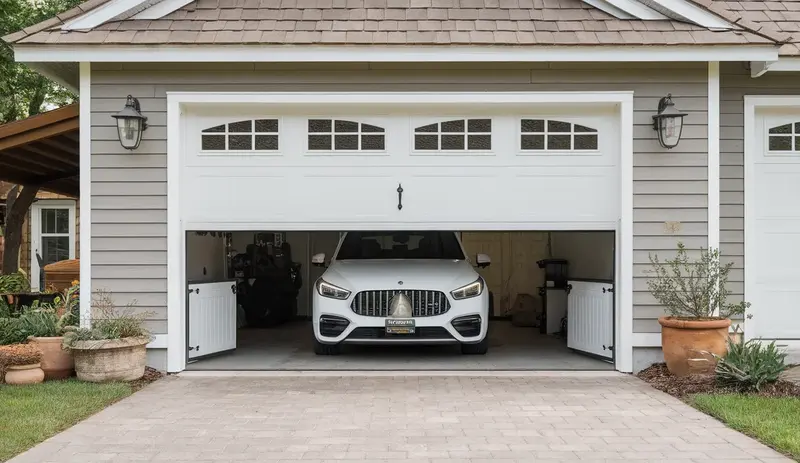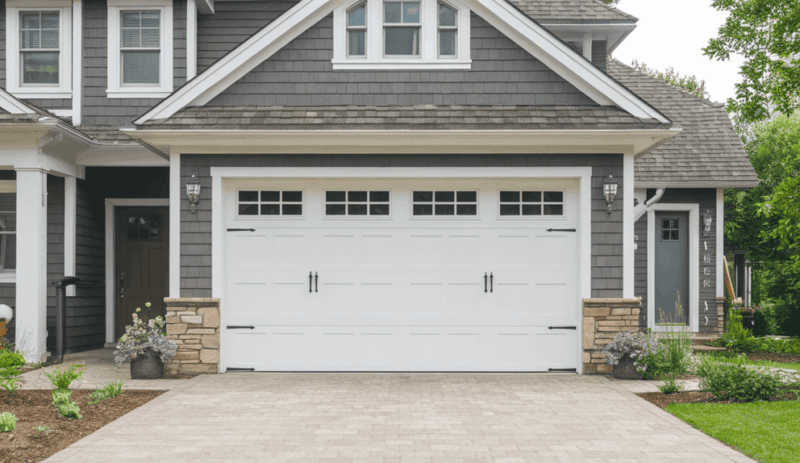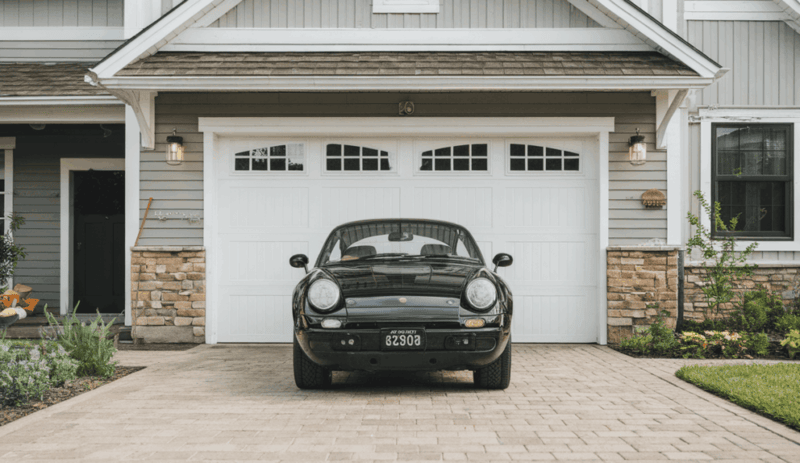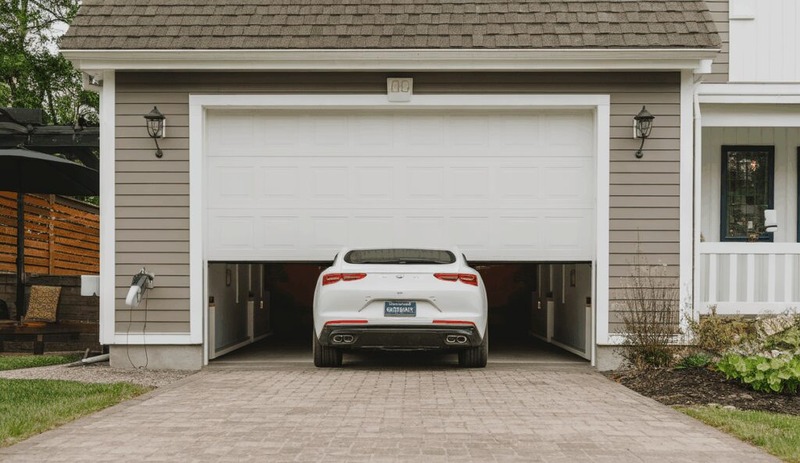
You’re standing in your driveway, watching your garage door struggle. It starts to close, then stops halfway or reverses unexpectedly. This frustrating situation happens to more homeowners than you might think.
Don’t panic. Garage door issues are common, and many can be solved with simple troubleshooting. We’ll walk you through the most likely reasons your door won’t close properly.
What Could Be Blocking Your Garage Door?
Garage doors are built with intelligent safety functions to thwart accidents, and one of the most critical of these is the sensor system. The sensors are like ever-watchful guardians to ensure nothing gets crushed during the movement of the garage door.
Most of the time when a garage door won’t close, something is interfering with these sensors. Pause to check your door’s lower perimeter. Inspect the floor area just beyond the side of your door for any large or small objects that might be jamming the signal path.
Are Your Garage Door Sensors Dirty or Misaligned?
In our Coopers Garage Doors Dallas, TX repair shop, we see sensor problems quite often. Accumulations of dirt, dust, and grime can disguise themselves on sensor lenses, creating invisible barriers that prevent the two parts from having a normal, healthy relationship.
It is crucial to achieve alignment. These sensors must “see” each other with absolute perfection—even a tiny angle can cause your door to think something is obstructing its path. Adjust the sensors with care. They should be pointing directly at each other to create an uninterrupted connection.
Could Your Garage Door Springs Be Causing Problems?
The smooth operation of a garage door is due to the springs. When they function properly, they’re almost invisible. Worn-out springs, however, can lead to a door that just doesn’t act right, most often closing unevenly and moving with a jerky motion.
Warning: Garage door springs are under severe stress and can be extremely hazardous. If you think the springs are the problem, you should definitely call in the experts. One little mistake, and you could end up really hurt.
Is Your Garage Door Track Causing Alignment Issues?
Consider your garage door track as if it were a train track—it must be perfectly straight and smooth. Any visible bends, gaps, or misalignments can cause your door not to close properly.
We’ve seen tracks in our years of service that have become bent due to impact or just plain wear and tear. Precision is required for tracks. A quick diagnosis and an even quicker alignment correction are the order of the day.
Also Read This: What to Do if Garage Door Starts Closing on Someone?
When Should You Call a Professional?
Let’s be honest: not every garage door problem is a do-it-yourself job. If you’ve looked for blockages, scrubbed your sensors, and the door still refuses to work, calling in the experts is your next best bet.
Professional technicians have the wherewithal to quickly identify and then solve tricky, involved problems that you might spend hours or days trying to figure out. Coopers Garage Doors is always prepared to assist residents of the Dallas area.
Quick Troubleshooting Recap:
- Inspect for any physical barriers that might be blocking the sensor’s view.
- Wipe down the lenses of the sensors. These can get dirty and impair the sensor’s ability to function.
- Make sure the sensors are aligned properly.
- If the door is making strange noises or isn’t moving like it should, this may be a sign that the sensors are malfunctioning.
- If all else fails, call in a pro.
Keep in mind that a garage door is a sophisticated mechanism. Avoiding wayward treatment can help stave off truly bad problems that demand a call to a service technician.
Garage door problems can be frustrating, but most have simple solutions. Safety comes first—don’t force a door that’s not working correctly. When in doubt, call a professional for help.




